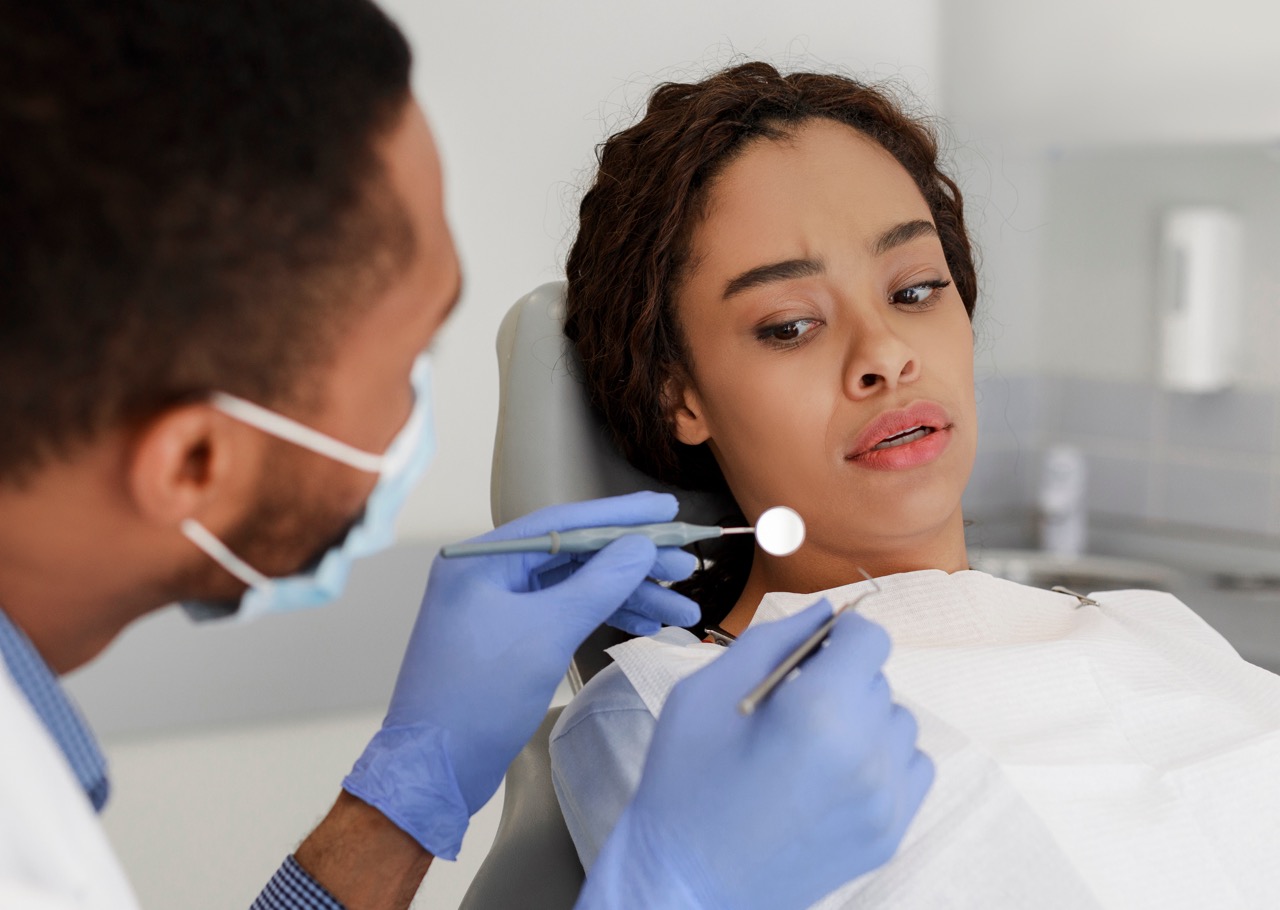Information Library
Start Reading
Do you get anxious about going to the dentist or have a fear of dental procedures? You may be suffering from dentophobia or fear of the dentist—and you’re not alone.
According to Dr. Kelly Daly, clinical psychologist and assistant research scientist at the Family Translational Research Group at NYU Dental School, one in five people globally suffer from this pervasive condition that can greatly impact oral and overall health and quality of life. If you’re suffering from dental fear, what can you do to lessen its impact? Dr. Daly offers insights that can help.
 These five questions and answers can help you understand the causes of dental anxiety and how to help ease your fears.
These five questions and answers can help you understand the causes of dental anxiety and how to help ease your fears.
According to Dr. Daly, dental fear is any degree of apprehension and worry about going to the dentist. Fifty-three million Americans who go to the dentist regularly suffer from it, and that number doesn’t include those who never make it to the dentist. “There is a huge spectrum in terms of severity,” she says, adding, “Anyone can have dental fear, regardless of their degree of education, their profession, their wealth.”
Dr. Daly shares that dental fear can look like many different things. It can have a physiological component, such as experiencing an elevated heart rate, difficulty breathing, sweating, or feeling hot, sticky, or uncomfortable.
There is also a cognitive component, which is worrying about what will happen at the dentist. For instance, someone might worry about experiencing pain. Or, to take it further, they might worry the dentist will hit a nerve and paralyze them.
There is also the avoidance component, which means they can’t bring themselves to go to the dentist.
 Unfortunately, there isn’t a simple answer. While most people with dental fear have had it since childhood, it can also be caused by something experienced later in life.
Unfortunately, there isn’t a simple answer. While most people with dental fear have had it since childhood, it can also be caused by something experienced later in life.
Sometimes, it has to do with a medical trauma or a dental trauma early in life that generalizes the experience. Other times, it’s an uncomfortable experience that most wouldn’t think would be that impactful, but it is to the individual. There is a huge spectrum in terms of what leads somebody to dental fear, and often, it doesn’t have anything to do with something that happened at the dentist.
Dr. Daly explains, “People who are more wired toward anxiety or suffer from claustrophobia and panic attacks generally tend to have dental fear, and those who’ve experienced traumatic situations or situations where they’ve had no control also tend to be very afraid of the dentist.” It’s as if they’re reexperiencing having to cede control to another person who’s in their intimate space.
When people let dental fear keep them from the dentist, thinking it will be painful and expensive, they could end up facing an ironic situation.
If they have a dental emergency, the experience will probably be more painful than it would have been if they’d had regular dental care—and more expensive because it’s an emergency treatment. “It’s a self-fulfilling prophecy,” Dr. Daly says. “They say, ‘See, I was right all along. It is always that painful, that aversive, that expensive,’ and then they go back to avoiding [the dentist].”
Additionally, over time, dental fear can cause more negative oral and overall health repercussions that affect quality of life.
First and foremost, Dr. Daly recommends talking to the dentist or hygienist about your dental fear and anxiety, and what could make you feel more comfortable during your visit. Ask what’s going to happen or ask them to share what they’re doing as they’re doing it so you won’t be caught off guard.
If you like to listen to meditation or music, ask if you can wear headphones during certain parts of the treatment so you don’t have to hear the drill or something else that upsets you. “Communication is key because people with dental fear need to know that they’re really in control here,” Dr. Daly notes.
Cognitive behavioral therapy treatments are also extremely effective for people suffering from severe dental fear. One such treatment is a two-step process for people with moderate to severe dental fear, which is available through a joint study between Penn Dental Medicine and NYU Dental.
 If you’re ready to fear less and smile more, we can help. Join the joint NYU Dentistry and Penn Dental Medicine Study from the privacy of your own home. We’re studying the effects of virtual dental fear treatment, and it may be just the assistance you need to help overcome your dental anxiety. You can learn more and enroll here.
If you’re ready to fear less and smile more, we can help. Join the joint NYU Dentistry and Penn Dental Medicine Study from the privacy of your own home. We’re studying the effects of virtual dental fear treatment, and it may be just the assistance you need to help overcome your dental anxiety. You can learn more and enroll here.
In the meantime, rest assured that everyone at Penn Dental Medicine is committed to making your visit as comfortable and stress-free as possible. Remember, regular oral care can keep you from falling into the vicious cycle of dental fear and its potentially serious health effects. Talk to us about your concerns at any point before or during your visit. We’re there for you with whatever support you need. Just complete this form or call us at 215-898-8965. (And take a moment to watch the video for Dr. Daly’s complete interview and advice.)